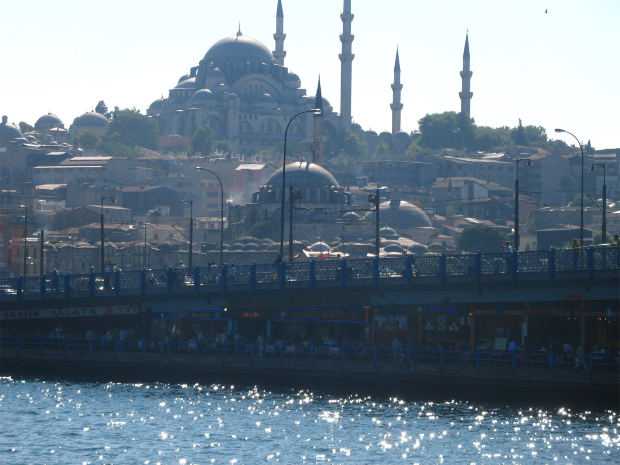I was lucky last week to spend a few days in Istanbul. The place has changed rapidly since I was last there in 2007. It’s still a bustling, vibrant place with the pulse of trade and manufacturing coursing through its veins – you can nearly hear its manufacturing heart beating. But affluence appears everywhere – bigger cars, tinted windows, traffic jams, high heels and designer bags, full restaurants. The endless ships, bow to stern 24/7, ploughing from the Black Sea into the Sea of Marmara and the Aegean and onto the Mediterranean. Still the bridge between continents but no longer a ‘cheap’ city, I would say just as expensive, if not more, as London.
My first visit was in 1962 and I clearly remember the Roman underground Cistern with the old city built over the top. When I went back in 1999 I noticed that the Romans had mastered Tier 3 with concurrent maintenance (about 2000 years before our data-centre industry!) – the Cistern was fed via the aqueduct from the mountains and had two tanks, each containing more than 8,000m³ of fresh water. When the water flowed fast in the spring from snow-melt the excess was used to feed the wells, pressurise the fountains and flush the streets. When the water slowed in the hot summers the tanks made up the shortfall. But the clever parts were the ‘transfer-switches’ at each end. Gates allowed one tank at a time to be drained for cleaning, concurrent with the other tank feeding the city above. Great availability engineering.
However on this visit my attention was drawn to two major news items that made an interesting contrast to the UK. (Obviously not as vital as the artillery exchanges across their eastern border but I would not dare to make any comments about which I know little).
The first was a quote from the Turkish Minister of Culture. They appear to have had a PR campaign running about ‘Made in Turkey’ and the Minister was questioning its success. My limited experience of Turkish manufacturing covers UPS and I know of at least one factory that produced top of the range units up to about 20kVA, even though it was located as it was in a city centre building of several floors of workshops. Their huge advantage back then was their low cost base, particularly labour. Everywhere you look in Istanbul you see workshops making all sorts, engineered products included. However the Minister was extolling a change to ‘Designed in Turkey’ and mentioned that this would not be so susceptible to low-cost competition from the Far East. Well my advice is based on my early days of selling motors and drive systems to manufacturing industries in our Midlands and South Wales during the late 70s. Nearly all now defunct, gone, exported and replaced by shopping malls, coffee shops with free Wi-Fi, charity shops, housing estates and unemployment. It’s simple; ‘manufacturing’ creates employment whilst ‘design’ generally does not. Our best example is probably Dyson – one of our best-ever product designers that now manufactures all those vortex cleaners and ball-barrows in low-cost countries but retains a few hundred jobs in the UK instead of creating thousands. We used to make washing machines and colour TVs in Wales, cars & bikes in the Midlands, trains in Swindon (OK, getting a bit Victorian now!). Now we even import slate from China instead of using the genuine Welsh stuff. So my advice to the Turkish Minister is ‘hang onto the idea of ‘Made in Turkey’ for as long as you can’. And when it comes to consider Turkey’s slow accession to the EU … best ask someone else!
The second item was just as fascinating. Turkey is building a new nuclear power station but, at the same time, opening new coal mines. Yes, coal mines. The UK government may want to contemplate why? The motivation for Turkey is that they are 50% dependent on gas imports (mainly from Russia and North Africa) and they don’t think that this gives them security of supply. The plan is to increase the role of coal (is that the opposite of our ‘dash for gas’?) to higher than 30% in the grid. Sounds strange? Maybe, but here we are in the UK dependent on the same Russian gas, closing coal-fired stations that burn Polish coal and our old nuclear-fission stations whilst sitting on an island built on deep-coal seams with over 300 years of reserves. OK, if we try to forget Mrs Thatcher and Arthur Scargill for a moment and start burning our own coal it won’t last 300 years, but maybe it will bridge the energy gap we are facing without dragging gas across some potentially unfriendly landscape?
I should visit Turkey more often – it taught to me to think better.
via Constantinople is still a major trading link between Europe & Asia | Datacenter Dynamics.


Leave a Reply